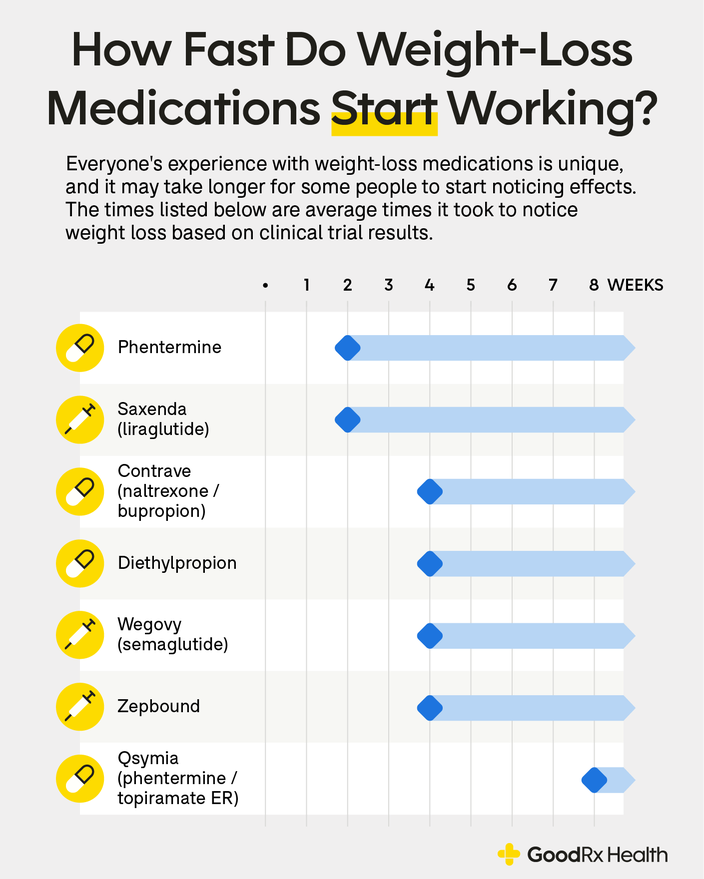WeightWatchers Bankruptcy: The Role Of Competing Weight Loss Medications

Table of Contents
The Rise of Injectable Weight Loss Medications
The introduction of highly effective injectable weight loss medications, such as Ozempic, Wegovy, and Mounjaro, has revolutionized the weight loss landscape. These medications, belonging to the GLP-1 receptor agonist class, have demonstrated remarkable efficacy in promoting weight loss, often surpassing the results achievable through traditional diet programs alone. Their popularity has skyrocketed, leading to:
- Increased market share for pharmaceutical companies: Big Pharma has seen a massive surge in profits as demand for these medications soars.
- Shift in consumer preference towards medication over traditional diet programs: Many individuals seeking rapid weight loss are turning to medication as a quicker, seemingly easier solution.
- Faster and potentially more significant weight loss results compared to lifestyle changes: The dramatic weight loss often seen with these medications is a powerful draw for consumers frustrated with slower progress from diet and exercise alone.
However, it's crucial to acknowledge the high cost and limited accessibility of these medications. Their expense places them out of reach for many, creating a disparity in access to effective weight loss solutions.
WeightWatchers' Traditional Approach and Its Limitations
WeightWatchers, for decades a prominent player in the weight loss industry, built its success on a points-based system that emphasized portion control, healthy eating habits, and community support. This approach focuses on sustainable lifestyle changes rather than rapid weight loss. However, compared to the dramatic results offered by injectable medications, WeightWatchers' methodology presents certain limitations:
- Slower progress and requiring more sustained effort: Achieving significant weight loss through lifestyle changes requires consistent effort and dedication over a longer period.
- Potentially higher long-term costs due to ongoing program fees: While medication might have a high upfront cost, ongoing WeightWatchers membership fees can accumulate over time.
- Less dramatic weight loss results impacting customer retention: The slower, more gradual weight loss achieved through WeightWatchers' program may not be as appealing to individuals seeking immediate visible results.
These limitations, in the face of the rapid weight loss promised by new medications, impacted WeightWatchers' ability to retain members and compete effectively.
The Impact of Competition on WeightWatchers' Financial Performance
The correlation between the surge in popularity of weight loss medications and WeightWatchers' declining revenue and membership is undeniable. While precise figures linking the two are difficult to isolate, analysts point to a clear downward trend in WeightWatchers' financial performance coinciding with the market penetration of injectable medications. This shift reflects a significant:
- Loss of market share to pharmaceutical companies: The weight loss market has become increasingly dominated by pharmaceutical giants.
- Decreased demand for traditional weight loss programs: Consumers are opting for the perceived convenience and speed of medication-based weight loss.
- Difficulty in competing with the perceived ease and effectiveness of medications: WeightWatchers' emphasis on lifestyle changes struggles to compete with the promise of rapid weight loss offered by prescription medications.
WeightWatchers' Response to the Competition
WeightWatchers has attempted to adapt to this changing landscape, but its responses have been insufficient to stem the tide. Possible strategies to counter the competition include:
- Incorporating medication information into their programs: Offering guidance and support for members considering or using weight loss medications.
- Developing hybrid programs combining medication and lifestyle changes: Integrating the benefits of medication with the long-term support of a traditional program.
- Focusing on long-term health and wellness beyond weight loss: Shifting the focus to broader health goals rather than solely on weight loss numbers.
- Improving marketing and highlighting unique advantages: Emphasizing the community support, holistic approach, and sustainable lifestyle changes offered by WeightWatchers.
Beyond WeightWatchers: The Broader Implications for the Weight Loss Industry
The impact of weight loss medications extends far beyond WeightWatchers. The entire weight loss industry is undergoing a significant transformation, forcing companies offering similar services to re-evaluate their strategies. The ethical considerations are also significant:
- Prioritizing medication over lifestyle changes: The current emphasis on medication raises concerns about the long-term health implications of neglecting lifestyle factors.
- Accessibility and equity: The high cost of these medications exacerbates existing health inequalities.
- Potential for misuse and dependence: The potential for overuse and dependence on these medications is a growing concern.
Conclusion
The rise of highly effective weight loss medications has significantly impacted the weight loss industry, contributing to WeightWatchers' financial struggles and highlighting the challenges faced by traditional weight loss programs in a rapidly evolving market. The intense competition underscores the need for adaptation and innovation within the industry. While WeightWatchers faced considerable challenges, the weight loss market remains dynamic and competitive. Understanding the role of competing weight loss medications is crucial for navigating this evolving landscape and making informed decisions about your weight loss journey. Learn more about the changing dynamics of the weight loss market and discover strategies for success in achieving your health goals.

Featured Posts
-
 Lake Charles Easter Weekend A Lineup Of Live Music And Events
May 09, 2025
Lake Charles Easter Weekend A Lineup Of Live Music And Events
May 09, 2025 -
 Jeanine Pirros Biography Education Net Worth And Notable Cases
May 09, 2025
Jeanine Pirros Biography Education Net Worth And Notable Cases
May 09, 2025 -
 The Best Victim For Season 2 A Look At High Potentials Underrated Season 1 Character
May 09, 2025
The Best Victim For Season 2 A Look At High Potentials Underrated Season 1 Character
May 09, 2025 -
 Doohans Development Palmers Insights Post Colapinto Alpine Appointment
May 09, 2025
Doohans Development Palmers Insights Post Colapinto Alpine Appointment
May 09, 2025 -
 Understanding The Link Between Mental Health And Violent Crime
May 09, 2025
Understanding The Link Between Mental Health And Violent Crime
May 09, 2025
